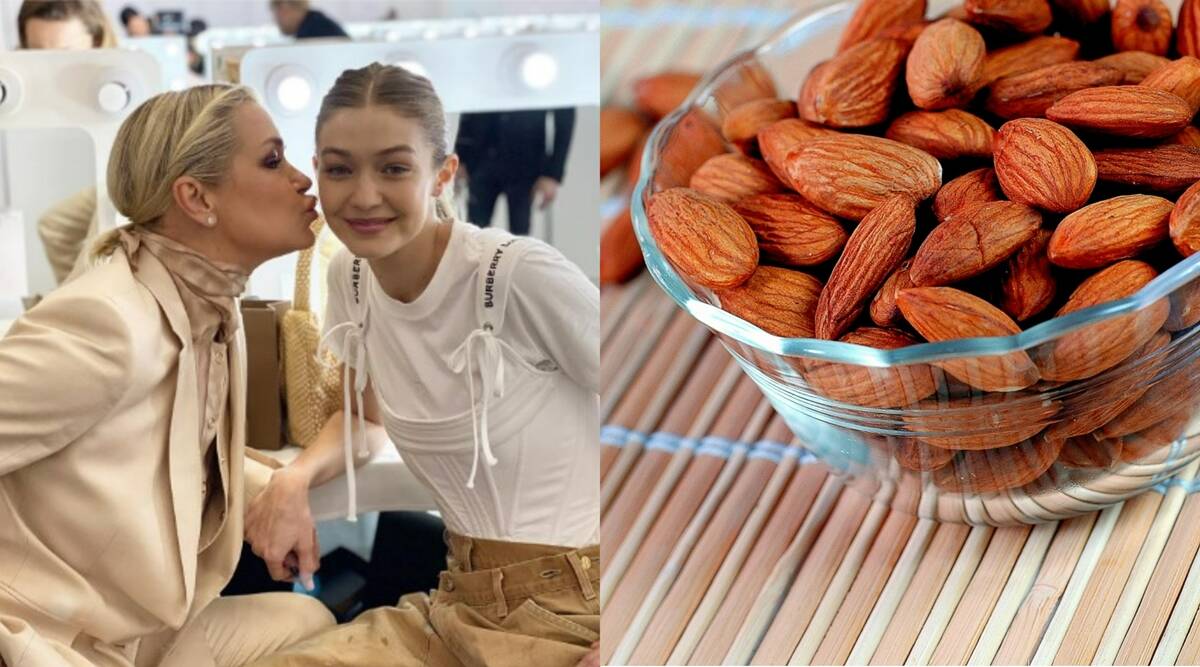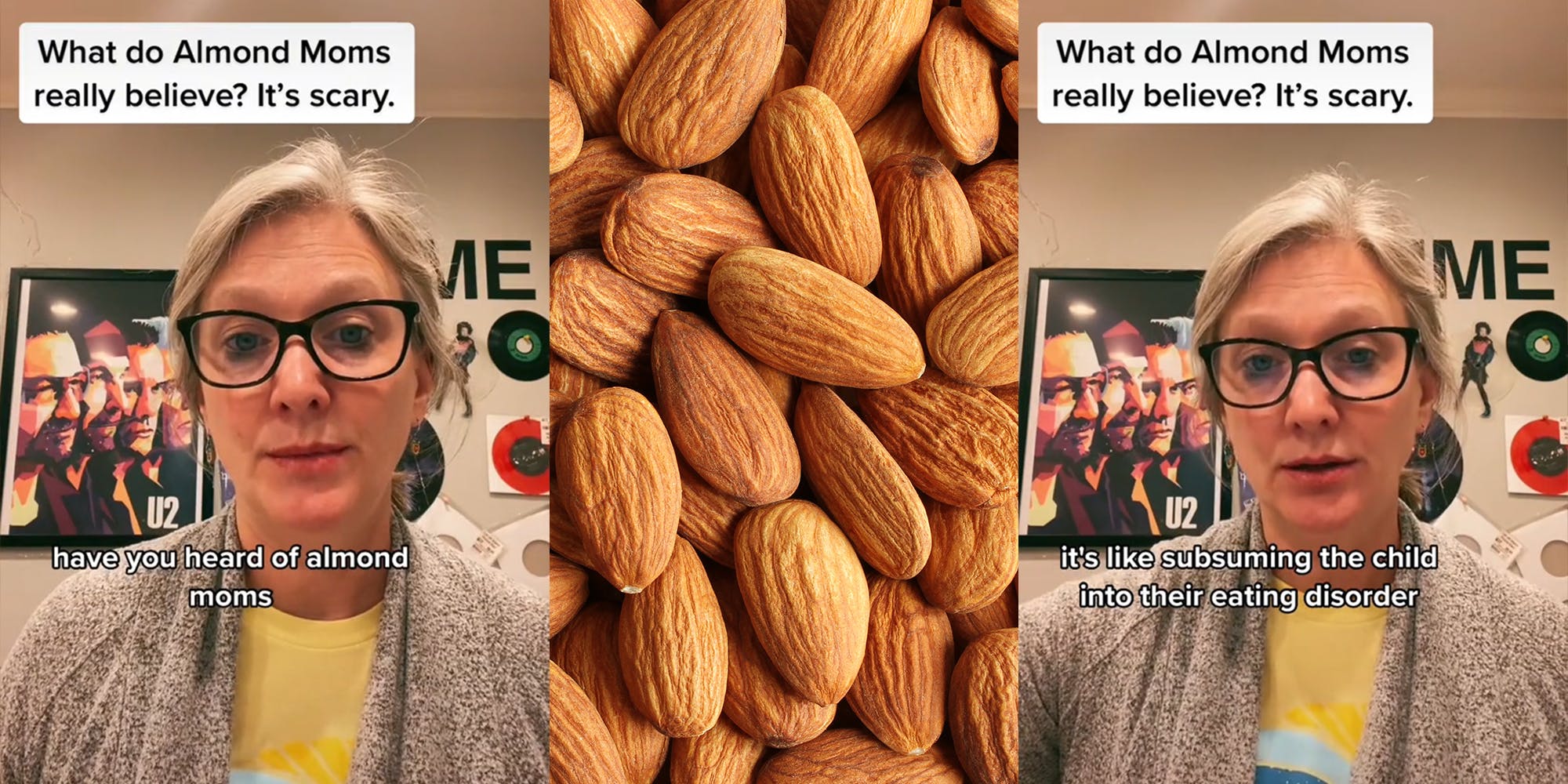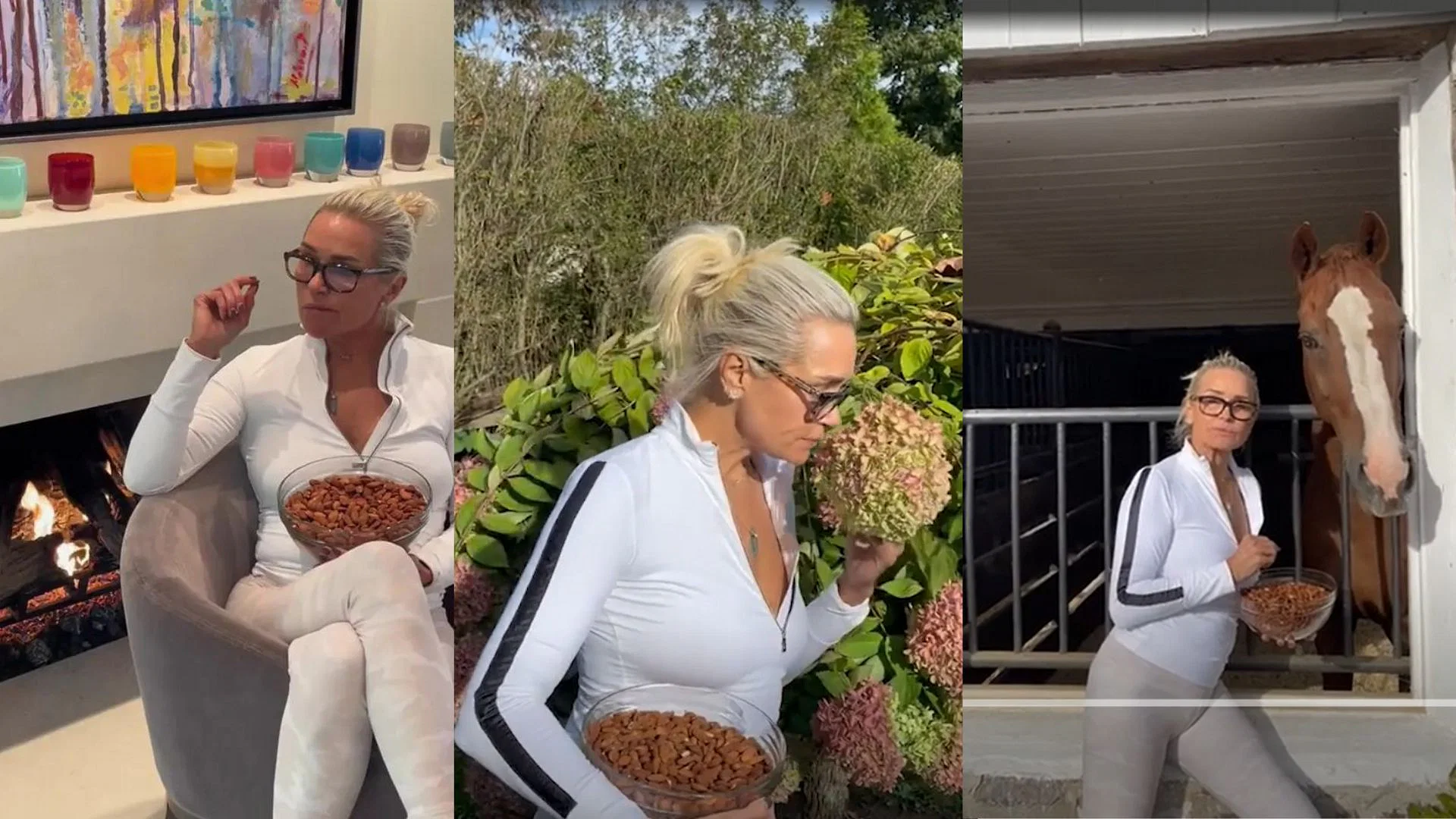A lot of older moments from TV shows, and in particular reality TV shows, having been going viral on TikTok. A lot of them have aged pretty poorly, and one in particular has been making the rounds lately comes from an episode of The Real Housewives of Beverly Hills in 2013. It features cast member Yolanda Hadid telling her daughter Gigi Hadid, who was a teen back then, to “have a couple of almonds and chew on them really well,” when her daughter told her she was hungry after eating “half an almonds” and “feeling really weak.”

What Is An Almond Mom?
Since the clip has gone viral, the term “almond mom” has been coined, and many people have opened up about their own “almond mom” experienced. The clip has amassed over 179 million views on the social media platform, which speaks volumes on how relatable this kind of experience is for so many people. A lot of people say that this sort of experience growing up has led to their eating disorders.
Yolanda has responded by saying that the clip was taken out of context. She even went as far as creating a TikTok video that mocked the whole thing by showing her eating almonds and referring to herself jokingly as #worstmomever. So with all of this attention to “almond mom” behavior, what are ways to avoid this kind of parenting?
Keri Baker, LCSW, who is a therapist and specializes in disordered eating shared: “Diet culture is insidious, and unfortunately it continues to be perpetuated by well-meaning adults who are also victims as a result of their own upbringing.”
She continued by saying that “parents talking about their own food intake or bodies in negative ways can have long-lasting effects on their kids, even if they never comment on what their kid is doing.”
Monika Ostroff, CEDS-S, and the executive director of Multi-Service Eating Disorders Association (MEDA), also explained: “Children are highly observant. They notice everything that their parents do. When parents have a turbulent relationship with food and their own bodies, it’s apparent in their routines. When parents ‘have’ to go to the gym before they allow themselves to eat or have rigid exercise routines, kids get the clear message that they need to ‘earn’ their food.”
It doesn’t really matter how old the kids are, as a parent, you can help make sure they don’t develop the same internalized messages you grew up with about your self-worth and appearance. The two things that are most impactful are your words and your actions. Baker explained: “Pay attention to your language around food and bodies and take a neutral stance (at the very least!). Ditch using terms like ‘good/bad’ and ‘healthy/unhealthy’ and integrate an approach where all foods and bodies are good and worthy.”

What Does This Mean For Kids?









